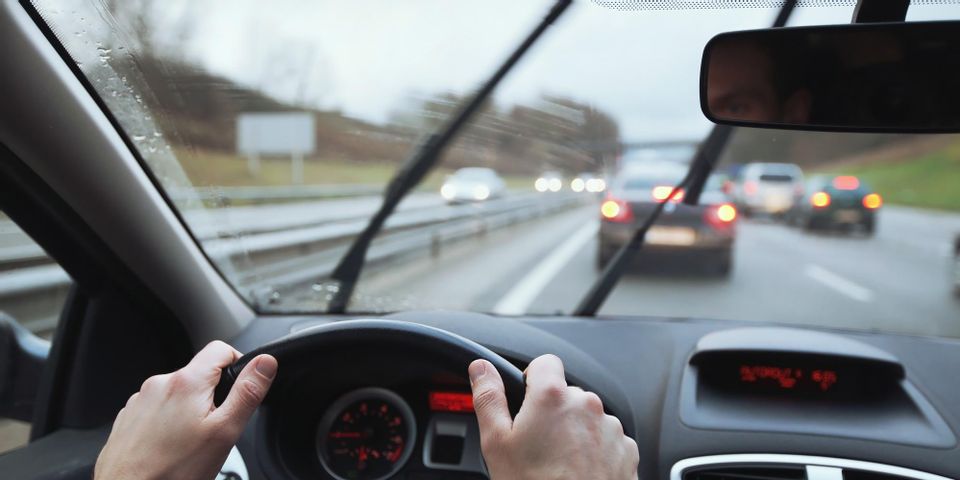
Getting stuck behind the wheel during a downpour can be a stressful and hazardous situation. Trying to figure out the right settings for your windshield wipers while also focusing on the road ahead can be difficult. Luckily, many auto manufacturer companies equip these components with rain sensor technology. The following guide explains how this works to help you stay safe on the road.
How Do They Work?
The technology for window sensors isn’t actually embedded in the auto glass itself, but rather through a detector mounted behind the rearview mirror. This device, which gets wired through the roof, uses the amount of sunlight reflected on the windshield to determine if the wipers should be on and how fast they should be moving.
 If the sensor detects low light levels, it’ll prompt the wipers to move faster. The raindrops on the glass take up space on the windshield and refract the incoming light internally, preventing it from reaching the detector.
If the sensor detects low light levels, it’ll prompt the wipers to move faster. The raindrops on the glass take up space on the windshield and refract the incoming light internally, preventing it from reaching the detector.
Benefits
Determining whether you should use your windshield wipers can be tricky. For example, if the glass is dirty or smudged, you might want to clear the grime off with the blades. However, this can damage the windshield by creating friction against the glass.
Rain sensor technology eliminates the potential for user error. By detecting the level of water and the available light, the sensor determines the appropriate speed and force for the wipers. This ensures they don’t go faster than what is safe for the glass, while also providing maximum visibility.
If you have additional questions or concerns regarding your windshield , whether it is has rain sensor technology, or it does not, turn to the professionals at Hilltop Auto Glass in Apollo, PA. With additional locations in Kittanning and Natrona Heights, as well as almost 40 years of experience providing a broad range of repair and replacement services, they have the skills, expertise, and resources needed to get the job done right. Visit their website to learn more about their services, or call (724) 567-7441 or at 800-544-1713 to schedule an appointment.
About the Business
Have a question? Ask the experts!
Send your question

